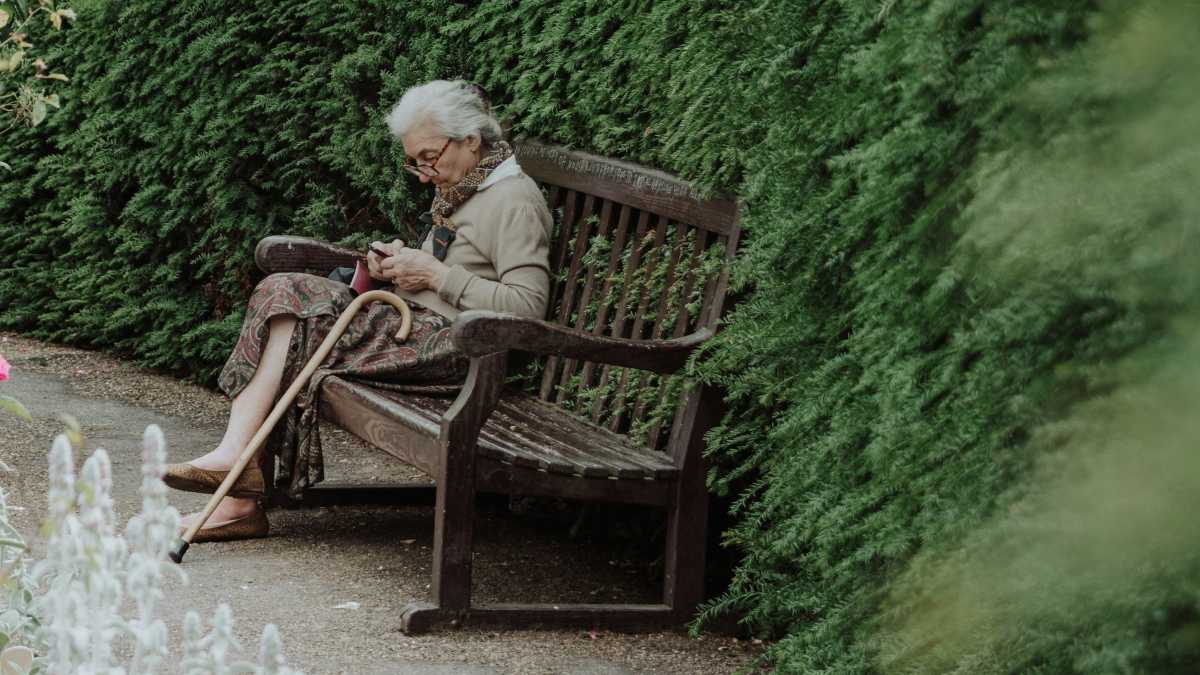
5 Ways To Avoid Loneliness In Your Golden Years
Old age shouldn't be a time of loneliness or despair. Here's how to avoid 'gray loneliness' in the winter season of life.

By Mark Travers, Ph.D. | February 29, 2024
As people grow older, they may experience social isolation or "gray loneliness" due to the loss of friends and loved ones, mental or physical limitations that restrict mobility and make it harder to engage in social activities and reduced work commitments that result in a loss of daily social interactions.
Moreover, societal attitudes toward aging can contribute to gray loneliness, as older adults may feel undervalued or forgotten. This highlights the importance of social support and community engagement in combating loneliness as we age.
A 2022 paper published in Perspectives on Psychological Science found that meeting one's social relationship expectations in older adulthood can prevent feelings of loneliness.
Here are five social relationship expectations that, if fulfilled, are key to a meaningful, socially connected life in older adulthood, according to the study.
1. Close Proximity To Loved Ones
Researchers suggest that older adults prefer to live closer to their social connections so they are available to interact with them often.
Cultural traditions and values significantly influence the importance of physical proximity to one's social network. In cultures prioritizing strong familial ties, this expectation is more pronounced than in individualistic cultures, where meeting up with friends and family may be perceived as somewhat burdensome.
"Being near social contacts reflects a universal, innate expectation to be embedded in a community of others. For example, Turkish older people tend to feel more lonely when they live alone than when they co-reside with their adult children, likely because an expectation for proximity and co-residence is part of Turkish culture," the researchers explain.
Seniors also expect to spend time engaging in shared interests with others. A lack of shared hobbies, ideas and purposeful engagement in one's community can exacerbate loneliness. Researchers suggest that these activities can curb rumination, help ease the transition into retirement while offering intellectual stimulation and novel ways to spend one's time.
2. Feeling Truly Supported
Receiving care and support from others is crucial in combating gray loneliness. Knowing that one can rely on others for assistance with daily living, finances or receiving emotional support and encouragement is essential to well-being.
Researchers suggest that when older adults receive less support than they expect, it can make them lonely. Moreover, who they wish to be supported by also matters. Across the world, they may expect to be cared for by their spouses or specifically by their oldest sons, daughters or friends and tend to feel lonelier when these expectations are not met.
3. Experiencing Emotional Intimacy
Older adults seek closeness, love, understanding and acceptance from their loved ones. Beyond gaining companionship, they desire connections with a sense of trust and validation, where others are genuinely interested and invested in their lives, enhancing their personal sense of "mattering."
They also value having the space to open up emotionally to others and share their innermost thoughts and feelings, which allows for a level of vulnerability and mutual understanding that is a source of comfort and solace in times of need.
Further, despite misconceptions and societal dismissals of sexual intimacy in later life, seniors tend to value it as a crucial component of their romantic relationships and overall life satisfaction.
4. Making Meaningful Contributions
"Generativity" refers to the desire and ability to contribute meaningfully to society, often by nurturing and guiding future generations, leaving a positive impact on one's community or creating a lasting legacy.
Researchers point out a common misunderstanding that older adults mainly depend on others for care and are seen as a financial strain on society, an image likely worsened by stereotypes about aging. Contrary to this view, they significantly contribute to society by providing valuable unpaid and informal care. However, these contributions frequently go unrecognized in economic measurements, rendering them invisible.
Older individuals can experience generativity by mentoring, caregiving, grandparenting, volunteering, creating art or literature and passing down cultural traditions and wisdom to younger generations. This practice fights loneliness by enhancing feelings of independence, responsibility, purpose and being needed.
5. Feeling Respected
Older individuals also experience the fundamental human need to feel valued, socially included and respected. This is a powerful antidote to gray loneliness as it affirms their worth and significance within society.
They expect to be respected for their contributions and wisdom within interpersonal relationships, treated with dignity in public spaces and, at a broader level, be represented and included in political and societal decision-making processes, which is sometimes not the case.
Further, seniors who perceive respect from younger individuals are more inclined to engage in generative behaviors, such as mentoring or providing guidance, which can serve as meaningful avenues for connection and fulfillment, while perceptions of disrespect can fuel loneliness. This is why fostering a culture of respect and inclusivity towards older adults is important.
Combating gray loneliness requires a multi-faceted approach that involves individuals, families, communities and governments working together to create age-friendly environments where older adults can thrive socially, physically and emotionally. By recognizing and addressing their social relationship expectations, they can be given the aging experiences that they deserve.
Test your level of loneliness in your intimate relationship by taking the evidence-based Loneliness In Intimate Relationships Scale.
A similar version of this article can also be found on Forbes.com, here.
